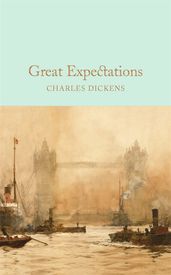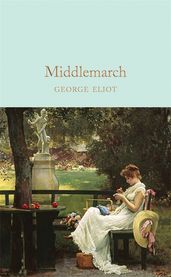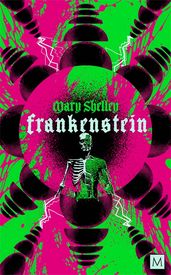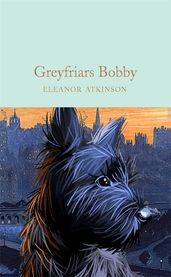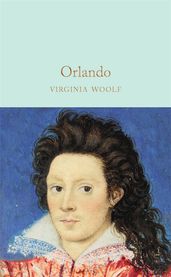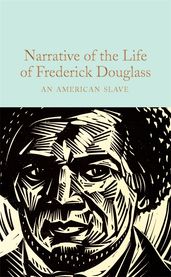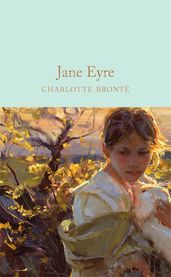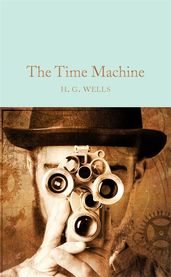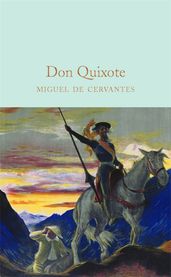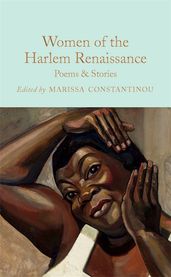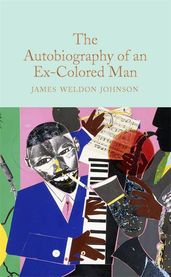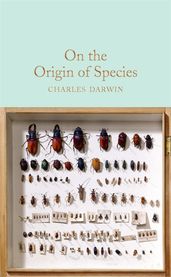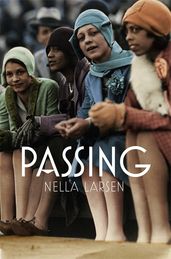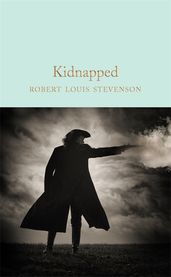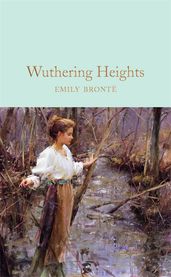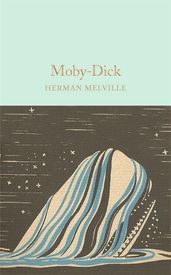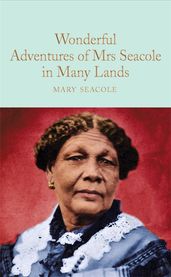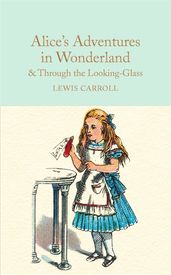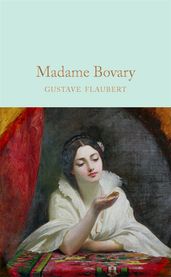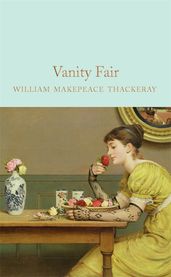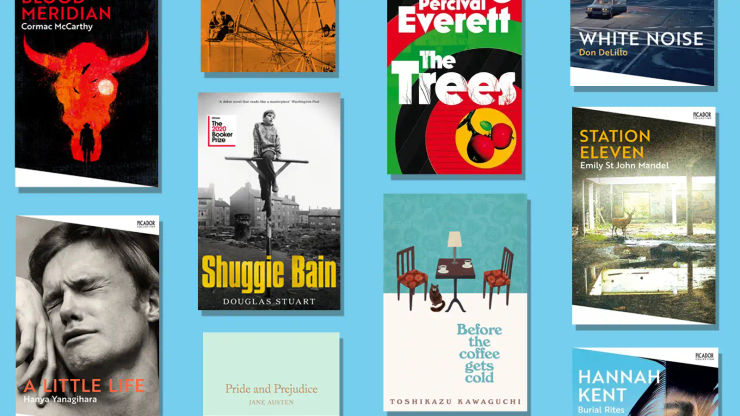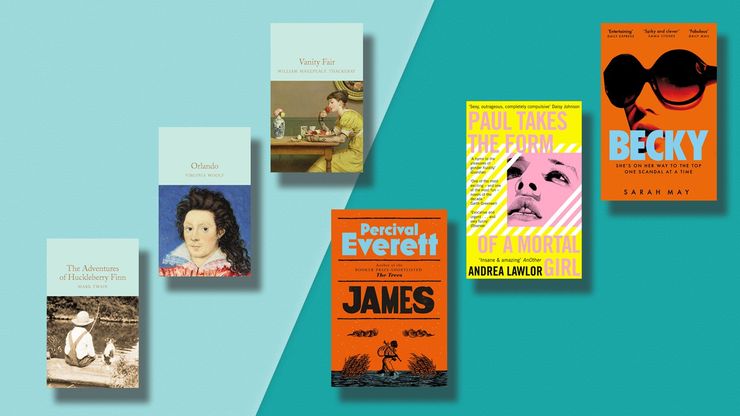Classic books to read at least once in your lifetime
Looking to cosy up with a classic? From the gothic horror of Frankenstein to the social satire of Pride and Prejudice, here is our edit of the classic novels everyone should read at least once in their lives.

In his book Why Read the Classics? Italian writer Italo Calvino defined classics as ‘books which, the more we think we know them through hearsay, the more original, unexpected, and innovative we find them when we actually read them.’ Pan Macmillan’s own Harriet Sanders, Publisher of Macmillan Collectors’ Library, believes that a classic ‘has to have endured and stood the test of time . . . they will deal with themes that are still relevant today – universal themes.’
From coming-of-age tales to romance, literary fiction to science that changed the world, here’s our edit of the classic books you should be adding to your reading bucket list.
Pride and Prejudice
by Jane Austen
Beneath the genteel surface of Regency England, Jane Austen’s Pride and Prejudice unfolds a sharp, witty exploration of love, class, and character. Elizabeth Bennet, a spirited and intelligent young woman, clashes with the seemingly aloof and arrogant Mr. Darcy in a tale where first impressions often deceive. As their interactions evolve from misunderstanding to mutual admiration, Austen masterfully critiques societal expectations, revealing the complexities of pride, prejudice, and personal growth. With its unforgettable characters and keen observations of human nature, Pride and Prejudice remains a timeless celebration of wit and romance.
Great Expectations
by Charles Dickens
Young Pip, an orphan raised in poverty, dreams of becoming a gentleman after an anonymous benefactor provides him with a fortune. As he navigates the complexities of wealth and social class, Pip encounters a vivid cast of characters – from the bitter, reclusive Miss Havisham to the enigmatic and cold Estella – each shaping his understanding of loyalty, love, and integrity. Charles Dickens’ masterful storytelling weaves a poignant exploration of human desires and the cost of misplaced aspirations, making Great Expectations an enduring classic.
Middlemarch
by George Eliot
A masterpiece of candid observation, emotional insight and transcending humour, Middlemarch is a truly monumental novel. Dorothea Brooke is a young woman set on filling her life with good deeds. She pursues the pompous Edward Casuabon, convinced that he embodies these principles, and becomes trapped in an unhappy marriage. Then there is Tertius Lydgate, an anguished progressive whose determination to bring modern medicine to the provinces is muddied by unrequited love. One of BBC's 100 Novels That Shaped Our World, Middlemarch explores almost every subject of concern to modern life and so remains as culturally relevant today as it has ever been.
Frankenstein
by Mary Shelley
Victor Frankenstein’s reckless pursuit of knowledge leads to terrifying consequences in Mary Shelley’s Frankenstein. Obsessed with unlocking the secrets of life, the young scientist creates a living being from the dead, only to recoil in horror at his creation. Abandoned and shunned, the creature embarks on a journey of revenge and despair, forcing both creator and creation to confront the limits of ambition, the pain of isolation, and the consequences of moral failure. This gothic classic raises profound questions about humanity, responsibility, and the boundaries of scientific exploration.
Greyfriars Bobby
by Eleanor Atkinson
For fourteen years, a small Skye terrier named Bobby kept watch over his master’s grave, turning a simple dog into a beloved legend. Set in nineteenth-century Edinburgh, Greyfriars Bobby follows the remarkable loyalty of this faithful companion, whose devotion touched the lives of an entire city. As Bobby becomes a fixture in Greyfriars Kirkyard, his quiet yet powerful story explores the profound connection between humans and animals. Eleanor Atkinson's tender narrative immortalises Bobby’s love, making it a timeless tribute to friendship and loyalty.
Little Women
by Louisa May Alcott
Amidst the backdrop of the American Civil War, four sisters – Meg, Jo, Beth, and Amy – grow up in a household filled with love, struggle, and ambition. Each sister faces her own journey toward adulthood, shaped by their dreams, disappointments, and the unshakable bond of family. From Jo’s fiery independence and literary passions to Amy’s quest for artistic fulfilment, their stories intertwine, revealing the complexities of growing up as young women in a society that imposes limits on their ambitions. Little Women is a timeless portrait of sisterhood and the enduring strength of familial love.
Orlando
by Virginia Woolf
Following its immortal namesake through three centuries of history, Orlando is a whimsical exploration of perceptions of gender and love through the ages. Orlando is a young Elizabethan nobleman whose wealth and status afford him an extravagant lifestyle. Appointed ambassador in Constantinople, he wakes one morning to find he is a woman. Inspired by the life of her lover, Vita Sackville West, Virginia Woolf's wildly imaginative, comic story is a real trailblazer.
Narrative of the Life of Frederick Douglass
by Frederick Douglass
Portraying a key moment in the anti-slavery movement, this unique memoir tells the incredible story of a man's escape from enslavement and journey to freedom.
Maryland, 1818. Frederick Douglass is born into a life of slavery. Spending his youth being passed from enslaver to enslaver, city to field, he is subjected to unimaginable cruelty. After eventually managing to escape, his memoir became hugely influential in the abolition of slavery, a goal that Douglass devoted his live to.
Jane Eyre
by Charlotte Brontë
Charlotte Brontë's masterpiece introduced the world to one of fiction's most memorable protagonists. As a child, orphan Jane Eyre suffers under cruel guardians and harsh schooling, but her indomitable spirit shines through against the greatest odds, and when she takes a position as governess at Thornfield Hall, the last thing she expects is to fall in love with the brooding master of the house. An enduring love story and undisputed classic, Jane Eyre is full of passion, mystery, tragedy, and a strong-willed and beloved heroine.
Death in Venice
by Thomas Mann
Revered writer Gustav von Aschenbach is in turmoil. He lives a solitary and disciplined life but realizes that there are still some things he’d like to experience. So, on holiday to Venice he goes, which he discovers to be an intoxicating place. There, he is struck by the beauty of a young boy called Tadzio. But admiration becomes infatuation as a deadly disease invades the sunny Italian shores. n atmospheric story of obsession and inner conflict set in the oppressive heat of a Venetian summer, Death in Venice is considered to be one of Thomas Mann’s greatest works.
Chéri
by Colette
Fred Peloux, affectionately nicknamed Chéri, is handsome and spoilt. Until now he’s lived a life of hedonistic luxury, and has been indulged in his every desire. He is newly married to the young and beautiful Edmée, and according to early twentieth-century Parisian society, he has everything a man could dream of. But the only woman he can think about is his lover, Léa de Lonval, a beautiful, ageing courtesan who has stolen his heart. Full of wit, drama and intensity, Chéri is a groundbreaking novel which grapples with radical ideas about sexuality and ageing.
The Great Gatsby
by F. Scott Fitzgerald
The book that best captures the flamboyance, the carelessness and the cruelty of the wealthy during America’s Jazz age. Evoking the glitz, glamour and the dark side of 1920s, The Great Gatsby is a cynical look at the limits of the American Dream.
The Time Machine
by H. G. Wells
H. G. Wells was among the first to express a plausible scientific method of time travel, and he also coined the term ‘time machine’ in this science fiction novella. The book has been adapted into three different films, and still influences science fiction writers today. The Time Machine is a pioneering classic that is considered by many to be the most influential sci-fi book of all time.
Don Quixote
by Miguel de Cervantes
Cervantes’s satirical observation of the human condition is classed as Europe’s first ‘modern’ novel and has sold over 500 million copies since it was first published in the early seventeenth century. It follows Don Quixote and Sancho Panza as they journey through Spain in search of adventure. They face spirits, evil enchanters and giants in a quest to perform acts of valour worthy of Dulcinea, his lady love. Cervantes's words have made an impact across the globe; even and at over 1000 pages, we promise it's worth the time.
Women of the Harlem Renaissance
by Marissa Constantinou
The Harlem Renaissance was a cultural movement that saw an explosion of Black art, music and writing, yet few female creatives are remembered alongside their male counterparts. This vital anthology celebrates the women of colour at the heart of the movement, with poems and stories that explore subjects from love, loss and motherhood to jazz, passing and Jim Crow law. Showcasing popular authors alongside writers you might discover for the first time, this collection of daring and disruptive writing encapsulates early twentieth-century America in surprising and beautiful ways.
The Autobiography of an Ex-Colored Man
by James Weldon Johnson
This groundbreaking novel examines race and class in America at the end of the nineteenth century. The narrator, who has lost his mother at a young age, is forced out of his comfortable middle-class life and into the world. His love of music takes him from an all-Black church in Georgia, to ragtime performances in New York, to the threats of the South. Here, the narrator abandons both his passion for music and his race, deciding to pass as white to survive.
On the Origin of Species
by Charles Darwin
Darwin’s record of his theory of evolution, which revolutionised our understanding of the natural world. On the Origin of Species is considered the foundation of evolutionary biology and is still hugely influential to this day.
Passing
by Nella Larsen
Immerse yourself in 1920s New York through Nella Larsen's distinctive and revealing novel. The story centres around identity, belonging and two childhood friends who’ve long grown apart – Clare Kendry who is proud of her Harlem roots, and Irene Redford who has abandoned them altogether, ‘passing’ as white to her racist husband in the upper classes of New York. As their worlds intertwine once again, tensions lead up to a truly shocking conclusion. A classic far ahead of its time, Passing reads like the best of contemporary literary fiction.
Kidnapped
by Robert Louis Stevenson
Headstrong David Balfour, orphaned at seventeen, sets out from the Scottish Lowlands to seek his fortune in Edinburgh. Betrayed by his wealthy Uncle Ebenezer, he is carried away to sea to be sold into slavery in the Carolinas. On board, he secures a timely alliance with Jacobite adventurer Alan Breck, and together they make an epic escape across the western Highlands. Inspired by real events, Kidnapped is a swashbuckling adventure of bizarre encounters, political assassination and wild carousings with Robert Louis Stevenson’s unique counterpoint of low morals and high comedy threaded throughout.
Wuthering Heights
by Emily Brontë
Heathcliff and Cathy are one of the most romantic and passionate couples in literature and Wuthering Heights is unsurpassed in its depiction of destructive love. This haunting gothic romance is one of the great novels of the nineteenth century, and has influenced numerous songs and film adaptations.
Moby-Dick
by Herman Melville
With its extraordinary intensity sustained by mischievous irony and moments of exquisite beauty, Moby-Dick is both a great American epic and a profoundly imaginative literary creation. On board the whaling ship Pequod a crew of wise men and fools, renegades and seeming phantoms is hurled through treacherous seas by crazed Captain Ahab, a man hell-bent on hunting down the mythic White Whale. Herman Melville transforms the little world of the whale ship into a crucible where mankind's fears, faith and frailties are pitted against a relentless fate.
Wonderful Adventures of Mrs. Seacole in Many Lands
by Mary Seacole
Mary Seacole was a pioneering nineteenth-century nurse, who travelled from her home in Jamaica to reach England, and went on – despite many obstacles – to fulfil her ambition of tending to soldiers fighting on the front line of the Crimean War. Overcoming prejudice, she became the toast of London society. An invaluable testimony.
Alice's Adventures in Wonderland & Through the Looking-Glass
by Lewis Carroll
Alice, the White Rabbit, the Cheshire Cat and the Queen of Hearts have kept readers spellbound for more than 150 years. This much loved book has never been out of print since it was first published, and has been adapted into dozens of films and TV series, plays and ballets, as well as influencing countless fantasy writers.
Madame Bovary
by Gustave Flaubert
This 1856 novel about being trapped in a loveless marriage is still so poignant today, and remains one of the best, and saddest, portraits of a woman ever written. Flaubert’s debut novel is a pioneering work of literary realism which faced obscenity charges when it was originally published but is now considered a masterpiece.
Vanity Fair
by William Makepeace Thackeray
Another unforgettable female character is Becky Sharp – a woman willing to use everything in her arsenal to secure a rich husband and live like a queen. This dazzlingly entertaining satire of early nineteenth-century high society is as popular now as it was upon publication.
For more from Macmillan Collector’s Library, check out this episode of Book Break where Emma talks to MCL Publisher Harriet about what makes a classic.

